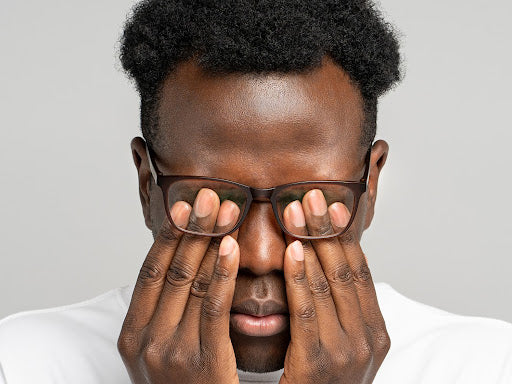The World Health Organization (WHO) estimates that 1.3 billion individuals worldwide have some sort of vision impairment. Uncorrected errors and cataracts are the top causes of visual impairment, according to the organization, and the bulk of people with visual impairment are over the age of 50.
The good news is that even minor precautions, such as wearing contact lenses and eating more vegetables, can help protect your vision and avoid vision issues later in life. According to the World Health Organization, over 80% of all eyesight impairment is preventable.
Preventive tips for vision loss
Here are some preventive measures to protect your eyes from loss of vision-
-
Antioxidants have been demonstrated to minimize the chances of cataracts in studies. Antioxidants are gained from a diet rich in fruits and colorful and dark green vegetables. Eating fish high in omega-3 fats has also been demonstrated to lower the risk of macular degeneration in studies. Consider adding eye vitamins to your diet to ensure that you are getting enough of the vitamins you need to maintain your eye health.
-
A full eye exam, which includes having contractions in your pupils, can help identify your risk of developing serious eye disorders like diabetes mellitus, which has no advance warning signs and symptoms. Regular eye exams will help maintain your glasses or lens care prescription up to date, allowing you to see as well as possible. If you are unable to get an eye test for some reason, there are methods for online vision tests nowadays.

-
The numerous risks associated with smoking have been widely recognized. When it comes to eye health, smokers are more likely to develop age-related macular degeneration, cataract, uveitis, and other issues. In addition to the aforementioned precautions, always eye protection while working using tools or engaging in strenuous sports to avoid eye injuries that could result in irreversible vision loss.
-
Always wear your glasses and contact lenses to avoid strain in your eyes. With proper contact lenses and reading glasses, the chances of vision loss reduce considerably.
-
Always wear shades that protect your eyes from the sun's damaging ultraviolet (UV) radiation when you're outside during the day. This may lower your chances of developing cataracts, pinguecula, and other vision issues. Itchy eyes are one of the main symptoms if you are having problems with UV radiation. These kinds of eye problems can be easily avoided by wearing shades during the daytime.
-
Preventing diabetes, the most frequent condition of blindness in India, is the best way to prevent diabetic retinopathy. This eye disorder affects nearly all individuals with type 1 diabetes, as well as roughly 60% of someone with type 2 diabetes. Diabetic retinopathy causes damage to the retina's small blood vessels. While there are no early symptoms of retinopathy, it is vital to recognize it as quickly as possible with routine eye exams. You can also perform some online vision tests for faster detection of eye problems.
-
Working on the computer for long hours can give you eye problems. In fact, most eye problems faced by youngsters nowadays are because of their longer exposure to computer screens. To avoid such eye problems, give yourself frequent breaks. Open and close your eyes if you are experiencing itchy eyes, and pour water on your eyes.
-
Blood pressure and blood sugar levels are to be monitored constantly. Eye problems such as blurred vision can be avoided by keeping your blood pressure in check. Also, monitoring your blood sugar levels work toward keeping your eye health at its best.
Conclusion
Leading an overall healthy lifestyle is usually the key to keeping your eye health in check. There are many other factors, such as family history and lifestyle, that add to your problems. But early detection of eye problems through Booking for an Eye test and other methods can make all the difference.
There's no way to know if you'll have a great vision for the rest of your life. However, if you follow the procedures above, you'll reduce your chances of acquiring an eye disease that could have been avoided.



